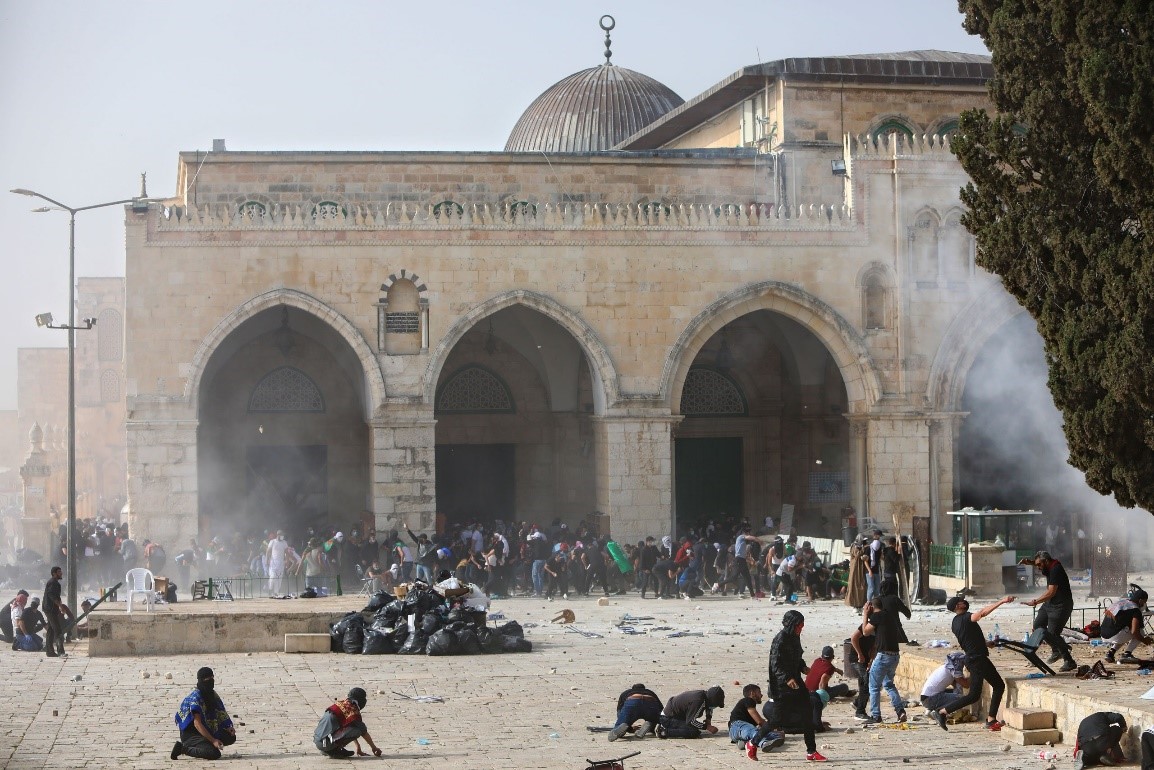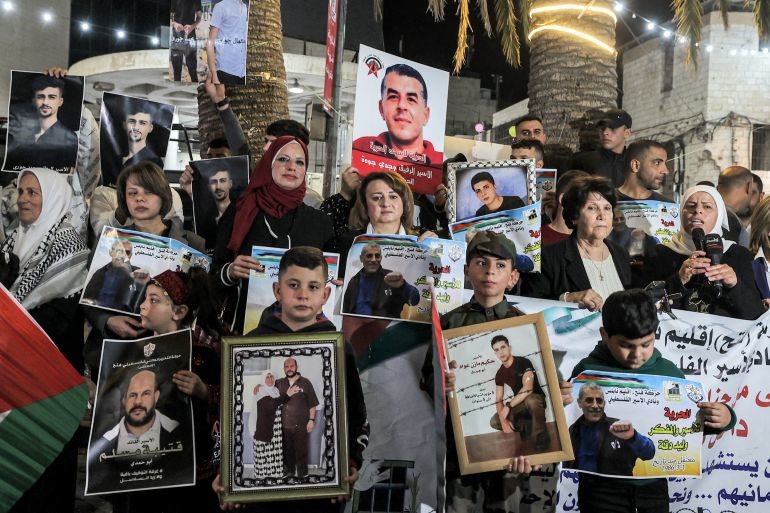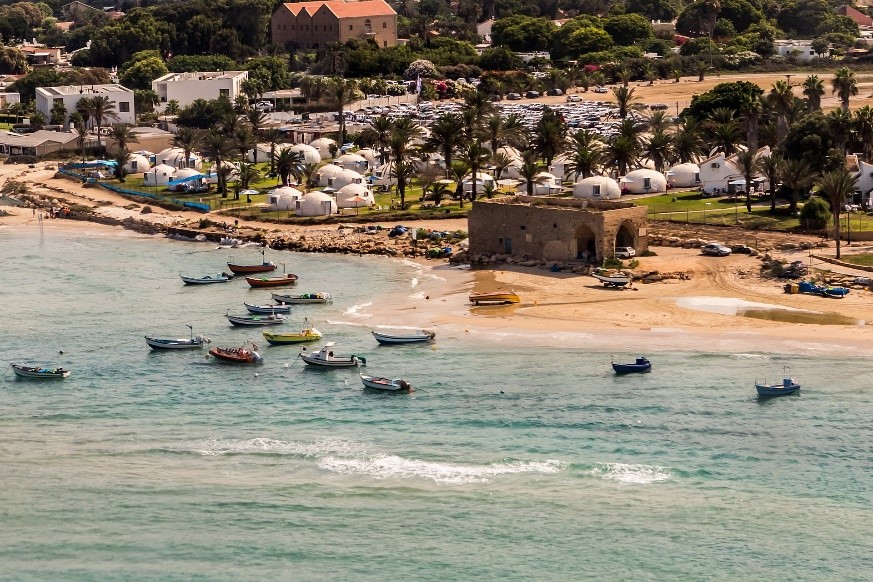The Gaza War in the Context of…
페이지정보
글쓴이 지중해지역원 조회 7,199 조회 날짜 23-12-18 23:21내용
The Gaza War in the Context of Palestine's Right of Armed Struggle Amidst the Most Protracted Colonization of the Middle East
By: Mona Farouk M. Ahmed
HK Professor, IMS
Director, Center for North African Studies
Throughout modern history, Palestinians have endured an extended period of occupation, beginning with the decline of Ottoman rule and the subsequent British occupation. Unlike other nations that gained independence from European occupation after World War II, Palestine faced a new occupation by Israel, persisting to the present day.
Since the establishment of the Israeli State in 1948, Palestinians have confronted significant threats from Israeli Jews including wars and massacres resulting in casualties, injuries, and mass displacement. Over more than half a century, Palestinians have fervently struggled for their independence, yet their aspirations remain unfulfilled. Instead, they have endured persecution in their homeland, encountering blockades, apartheid, and violence against them.
The ongoing conflict in Gaza began with a Hamas attack on October 7. Hamas, the Islamic Resistance Movement, gained political control over the Gaza Strip after winning the Palestinian Legislative election in 2006. It also has supporters in the West Bank, governed by Fatah, the second-largest party in the Palestinian Legislative Council. In response, Israel implemented a blockade on Gaza, restricting the entry of essential goods and causing economic hardship, as well as limiting the freedom of movement for Gaza's residents. This blockade is considered a form of collective punishment, violating international law. Additionally, Israel imposed other sanctions on Palestinians, including withholding tax revenue from the Palestinian Authority and imposing travel restrictions on members of the Palestinian Legislative Council.
Israel's oppression extended beyond Gaza to other Palestinian territories, including the West Bank and Jerusalem, leading to a cycle of violence involving the firing of rockets by both Hamas and Israel. These conflicts, including the Gaza Massacres in 2008-2009 and the 2021 war, were purportedly initiated by Israel in response to Hamas violence against Israelis. This violence, in turn, was seen as a reaction to escalating oppressive measures taken by Israel against Palestinians. For instance, the rocket firing by Hamas in 2021 was a response to continuous Israeli measures, including the demolition of Palestinian neighborhoods, such as the Sheikh Jarrah neighborhood in East Jerusalem. These measures sparked Palestinian protests, which were harshly suppressed by Israeli forces during the holy month of Ramadan at the Al-Aqsa Mosque, resulting in hundreds of injuries among Palestinians.
Image of Israeli forces storming Al-Aqsa mosque in Ramadan 2021

Similarly, the recent attack by Hamas on October 7 was declared by Hamas leaders to be part of the resistance seeking the liberation of Palestine. Specifically, it was portrayed as a response to the invasion of Al-Aqsa Mosque by Israeli settlers and the ongoing Israeli aggression in the West Bank. Another significant motivation for these attacks was the treatment of Palestinian prisoners in Israeli prisons, who are facing increasingly harsh conditions and torture under Israeli Minister of National Security Itamar Ben-Gvir.
An image of a rally in Nablus, West Bank, on April 17, 2023, where people gathered with images of Palestinian prisoners held in Israeli custody.

Source: Al-Jazeera, https://www.aljazeera.com/features/2023/10/21/number-of-palestinian-prisoners-in-israel-doubles-to-10000-in-two-weeks
It is noteworthy that since 1967, when Israel occupied East Jerusalem, the Gaza Strip, and the West Bank, approximately one million Palestinians have been arrested, according to a United Nations report last summer. One in every five Palestinians has faced arrest and charges under military orders that govern various aspects of the lives of Palestinians living under Israeli military occupation. Since the second Intifada began in 2000, over 12,000 Palestinian children have been detained by Israeli forces. Annually, at least 700 Palestinian children under the age of 18 from the occupied West Bank go through Israeli military courts after being arrested, interrogated, and detained by the Israeli army.
According to Al-Jazeera news on October 8, the day after the Hamas attack, the number of Palestinians imprisoned in Israel before October 7 was 5,200, including 33 women and 170 children. If tried, Palestinian prisoners are prosecuted in military courts. These numbers doubled within only two weeks of the current Gaza war.
On the other hand, Israel considers Hamas a terrorist organization aiming to destroy Israel. In response, Israel asserts its full right to use all means necessary to counter the perceived threat posed by Hamas. However, this brings to mind certain Israeli actions against the British mandate in Palestine before the establishment of the Israeli State. During that period, the Haganah, a Zionist military organization representing the majority of Jews in Palestine from 1920 to 1948, carried out anti-British military operations. These actions, which the international community labeled as acts of terror, included bombing the country's railroad network, targeting the British government and military headquarters at the King David Hotel in Jerusalem, conducting raids on British air force bases at Qastina and near Kfar Syrkin, and liberating Jewish prisoners from the prison in Acre. The Israeli state proudly records these actions as part of its struggle for independence and not as acts of terrorism.
In addition, the establishment of the Israeli state saw massacres perpetrated against the Palestinian people, who had the right to resist the British occupation as the indigenous inhabitants of the Palestinian territories. One such massacre was documented in a film produced by Israelis, exposing the atrocities committed by Jewish forces in 1948 in the fishing village of Tantura. Approximately 1,500 men from the village were ruthlessly executed despite surrendering to Israeli forces, and their bodies were dumped in a mass grave, now believed to be under a car park at Dor Beach. Both Israeli and Palestinian witnesses corroborated these events in the documentary.
Image of a popular Israeli beach, the site where the mass Palestinian grave of the Palestinian victims of Tantura village is located now.

Source: https://en.wikipedia.org/wiki/Tantura_massacre
In alignment with the principles of international humanitarian law, the right to engage in wars of national liberation has been explicitly recognized and endorsed. This recognition is evident in the acceptance of Additional Protocol I to the Geneva Conventions of 1949, affirming it as a vital and safeguarded entitlement for occupied populations globally. Additionally, the United Nations General Assembly reiterated this stance in Resolution 37/43, released on December 3, 1982, reaffirming the legitimate right of occupied populations to resist occupying forces through any means necessary, including armed struggle declaring that “the legitimacy of the struggle of peoples for independence, territorial integrity, national unity and liberation from colonial and foreign domination and foreign occupation by all available means, including armed struggle”. Can we categorize Hamas’s attacks on Israel as an armed struggle for independence in the context of continuous Israeli occupation and its oppressive measures against Palestinians? How far can we label Hamas members as terrorists? Notably, it's worth mentioning that Nelson Mandela, a symbol of peace and freedom in South Africa, remained on U.S. terrorist watch lists until 2008. These questions remain debatable for now but the future will give us answers later.
References:
https://www.un.org/unispal/document/auto-insert-184801/
https://www.aljazeera.com/opinions/2017/7/20/palestinians-have-a-legal-right-to-armed-struggle
https://www.unocha.org/occupied-palestinian-territory
https://www.un.org/en/situation-in-occupied-palestine-and-israel
https://carnegieendowment.org/sada/90836
https://www.jewishvirtuallibrary.org/the-evolution-of-armed-jewish-defense-in-palestine
https://time.com/5338569/nelson-mandela-terror-list/
댓글목록
댓글이 없습니다
